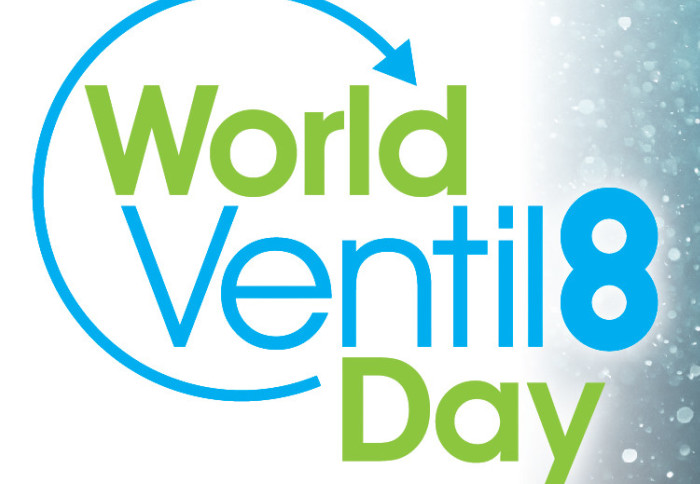Imperial engineers champion better ventilation for a healthier world

Imperial engineers working to improve ventilation in buildings and urban environments are participating in the first ever World Ventilation Day.
The first annual World Ventilation Day – WorldVentil8Day – takes place on 8 November 2022 and involves a series of in-person and online events and discussions around the world.
The ventilation of our buildings, and the implications for our health and wellbeing that follow, are now in the spotlight like never before. Dr Henry Burridge Department of Civil and Environmental Engineering
Good ventilation in buildings can reduce exposure to indoor air pollutants, aid human productivity, improve sleep, and reduce mould and damp in buildings. It is also a key factor in reducing transmission of infectious diseases like COVID-19, colds, and flu. However, many buildings do not have good ventilation including insufficient adherence to building regulations.
The campaign will help to highlight the role of ventilation and ventilation methods depending on the age, design, location, and purpose of a building. It also explains how building operators can manage the complex trade-off between ventilation, energy consumption, climate change, urban pollution, noise, comfort, and security.
Ventilation plays a crucial role in the amount of indoor air pollution we are exposed to. Professor Maarten van Reeuwijk Department of Civil and Environmental Engineering
Launched by a coalition of scientists, engineering bodies and environmental activists spearheaded by the University of Leeds, the campaign promotes the critical role of better building ventilation in supporting health, wellbeing, and productivity worldwide.
Dr Henry Burridge and Professor Maarten van Reeuwijk of Imperial College London’s Department of Civil and Environmental Engineering focus their research on improving ventilation, including in schools, and urban environments. They are investigators for the air quality networks The Future Urban Ventilation Network who are taking a leading role in the campaign, and Tackling Air Pollution at School who support it.
Dr Burridge said: “The pandemic has been a difficult time for so many people, and a better awareness of the need for good ventilation is one of the positive changes from this bit of history. The ventilation of our buildings, and the implications for our health and wellbeing that follow, are now in the spotlight like never before. WorldVentil8Day offers a unique opportunity to cement its awareness in the public consciousness and, in future years, build towards the improvements in ventilation that will deliver benefits for our society.”
Professor van Reeuwijk said: “Most of the air we breathe is inhaled indoors because that is where we spend most of our time as a population. Ventilation plays a crucial role in the amount of indoor air pollution we are exposed to. Since some of the pollution sources are outside, ensuring our urban environments have improving air quality - for example, by ventilating our cities better - is very important.”
Good ventilation is part of creating a sustainable and low-carbon environment, by using technology well to balance air quality, energy use and comfort. Professor Cath Noakes University of Leeds
Spearheaded by the Future Urban Ventilation Network, led Professor Cath Noakes at the University of Leeds, the campaign is being driven by UK bodies Building Engineering Services Association (BESA), the Chartered Institution of Building Services Engineers (CIBSE), Institution of Mechanical Engineers (IMechE) and the Federation of Environmental Trade Associations (FETA).
Professor Noakes said: “Good ventilation is part of creating a sustainable and low-carbon environment, by using technology well to balance air quality, energy use and comfort. It is critical to making buildings more resilient to health threats including our regular battles with the transmission of colds and flu around crowded indoor spaces.”
UK academics backing the initiative include those from Imperial and the universities of Nottingham, Leeds, Loughborough, Sheffield, and Strathclyde.
They are working with international partners the umbrella body for European contractors’ organisations (AREA), the Federation of European Heating, Ventilation and Air Conditioning Associations (REHVA), the American Society of Heating, Refrigerating and Air Conditioning Engineers (ASHRAE), International Society of Indoor Air Quality and Climate (ISIAQ), and the United Nations Environment Programme (UNEP).
Article text (excluding photos or graphics) © Imperial College London.
Photos and graphics subject to third party copyright used with permission or © Imperial College London.
Reporter
Caroline Brogan
Communications Division